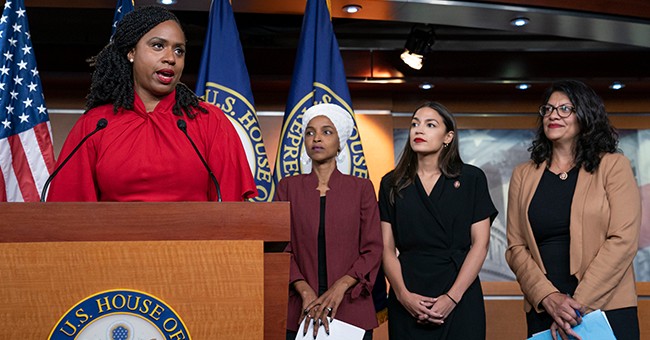https://www.investopedia.com/ask/answers/09/antitrust-law.asp
Many countries have broad laws that protect consumers and regulate how companies operate their businesses. The goal of these laws is to provide an equal playing field for similar businesses that operate in a specific industry while preventing them from gaining too much power over their competition. Simply put, they stop businesses from playing dirty in order to make a profit. These are called antitrust laws.
KEY TAKEAWAYS
Antitrust laws are statutes developed by governments to protect consumers from predatory business practices and ensure fair competition.
Antitrust laws are applied to a wide range of questionable business activities, including market allocation, bid rigging, price fixing, and monopolies.
Core U.S. antitrust law was created by three pieces of legislation: the Sherman Anti-Trust Act of 1890,1 the Federal Trade Commission Act,2 and the Clayton Antitrust Act.3
What Are Antitrust Laws?
Antitrust laws also referred to as competition laws, are statutes developed by the U.S. government to protect consumers from predatory business practices. They ensure that fair competition exists in an open-market economy. These laws have evolved along with the market, vigilantly guarding against would-be monopolies and disruptions to the productive ebb and flow of competition.
Antitrust laws are applied to a wide range of questionable business activities, including but not limited to market allocation, bid rigging, price fixing, and monopolies. Below, we take a look at the activities these laws protect against.
If these laws didn't exist, consumers would not benefit from different options or competition in the marketplace. Furthermore, consumers would be forced to pay higher prices and would have access to a limited supply of products and services.
Market Allocation
Market allocation is a scheme devised by two entities to keep their business activities to specific geographic territories or types of customers. This scheme can also be called a regional monopoly.
Suppose my company operates in the Northeast and your company does business in the Southwest. If you agree to stay out of my territory, I won't enter yours, and because the costs of doing business are so high that startups have no chance of competing, we both have a de facto monopoly.
In 2000, the Federal Trade Commission (FTC) found FMC Corp. guilty of colluding with Asahi Chemical Industry to divide the market for microcrystalline cellulose, a primary binder in pharmaceutical tablets. The Commission barred FMC from distributing micro-crystalline cellulose to any competitors for 10 years in the United States, and also banned the company from distributing any Asahi products for five years.4
Bid Rigging
The illegal practice between two or more parties who collude to choose who will win a contract is called bid rigging. When making bids, the "losing" parties will purposely make lower bids in order to allow the "winner" to succeed in securing the deal. This practice is a felony in the U.S. and comes with fines—even jail time.
There are three companies in an industry, and all three decide to quietly operate as a cartel. Company 1 will win the current auction, so long as it allows Company 2 to win the next and Company 3 to win the one after that. Each company plays this game so they all retain current market share and price, thereby preventing competition.
Bid rigging can be further divided into the following forms: bid suppression, complementary bidding, and bid rotation.
Bid Suppression: Competitors refrain from bidding or withdraw a bid so a designated winner’s bid is accepted.
Complementary Bidding: Also known as cover or courtesy bidding, complementary bidding happens when competitors collude to submit unacceptably high bids for the buyer or include special provisions in the bid that effectively nullify the bids. Complementary bids are the most frequent of bid-rigging schemes and are designed to defraud purchasers by creating the illusion of a genuinely competitive bidding environment.
Bid Rotation: In bid rotations, competitors take turns being the lowest bidder on a variety of contract specifications, such as contract sizes and volumes. Strict bid rotation patterns violate the law of chance and signal the presence of collusion activity.
Price Fixing
Price fixing occurs when the price of a product or service is set by a business intentionally rather than letting market forces determine it naturally. Several businesses may come together to fix prices to ensure profitability.
Say my company and yours are the only two companies in our industry, and our products are so similar that the consumer is indifferent between the two except for the price. In order to avoid a price war, we sell our products at the same price to maintain margin, resulting in higher costs than the consumer would otherwise pay.
For example, Apple lost an appeal regarding a 2013 U.S. Department of Justice ruling that found it guilty of fixing the prices of ebooks. Apple was found liable to pay $450 million in damages.5
Monopolies
Usually, when most people hear the term "antitrust" they think of monopolies. Monopolies refer to the dominance of an industry or sector by one company or firm while cutting out the competition.
One of the most well-known antitrust cases in recent memory involved Microsoft, which was found guilty of anti-competitive, monopolizing actions by forcing its own web browsers upon computers that had installed the Windows operating system.6
Regulators must also ensure monopolies are not borne out of a naturally competitive environment and gained market share simply through business acumen and innovation. It’s only acquiring market share through exclusionary or predatory practices that is illegal.
Below are a few types of monopolistic behavior that can be grounds for legal action:
Exclusive Supply Agreements: These occur when a supplier is prevented from selling to different buyers. This stifles competition against the monopolist as the company will be able to buy supplies at potentially lower costs and prevent competitors from manufacturing similar products.
Tying the Sale of Two Products: When a monopolist has dominance in the market shares of one product but wishes to gain market shares in another product, it can tie sales of the dominant product to the second product. This forces customers for the second product to buy something they may not need or want and is a violation of antitrust laws.
Predatory Pricing: Often hard to prove, and requiring a careful examination on the part of the FTC, predatory pricing can be considered monopolistic if the price cutting firm can cut prices far into the future and has enough market share to recoup its losses down the line.
Refusal to Deal: Like any other company, monopolies can choose who they wish to conduct business with. However, if they use their market dominance to prevent competition, this can be considered a violation of antitrust laws.
Mergers and Acquisitions
No introduction to antitrust legislation would be complete without addressing mergers and acquisitions. We can divide these into horizontal, vertical and potential competition mergers.
Horizontal Mergers: When firms with dominant market shares prepare to enter a merger, the FTC must decide whether the new entity will be able to exert monopolistic and anti-competitive pressures on the remaining firms. For example, the company that makes Malibu Rum and had an 8% market share of total rum sales, proposed buying the company that makes Captain Morgan’s rums, which had a 33% of total sales to form a new company holding 41% market share.7
Meanwhile, the incumbent dominant firm held over 54% of sales. This would mean the premium rum market would be composed of two competitors together responsible for over 95% of sales in total. The FTC challenged the merger on the grounds that the two remaining companies could collude to raise prices and forced Malibu to divest its rum business.7
Unilateral Effects. The FTC will often challenge mergers between rival firms that offer close substitutes, on the grounds that the merger will eliminate beneficial competition and innovation. In 2004, the FTC did just that, by challenging a merger between General Electric and a rival firm, as the rival firm manufactured competitive non-destructive testing equipment. In order to go forward with the merger, GE agreed to divest its non-destructive testing equipment business.8
Vertical Mergers. Mergers between buyers and sellers can improve cost savings and business synergies, which can translate to competitive prices for consumers. But when the vertical merger can have a negative effect on competition due to a competitor’s inability to access supplies, the FTC may require certain provisions prior to the completion of the merger. For example, Valero Energy had to divest certain businesses and form an informational firewall when it acquired an ethanol terminator operator.9
Potential Competition Mergers. Over the years, the FTC has challenged rampant preemptive merger activity in the pharmaceutical industry between dominant firms and would-be or new market entrants to facilitate competition and entry into the industry.
The Big Three Antitrust Laws
Let’s take a brief look at the main antitrust laws in the United States. The core of U.S. antitrust legislation was created by three pieces of legislation: the Sherman Anti-Trust Act of 1890,1 the Federal Trade Commission Act2—which also created the FTC—and the Clayton Antitrust Act.3
The Sherman Anti-Trust Act intended to prevent unreasonable "contract, combination or conspiracy in restraint of trade," and "monopolization attempted monopolization or conspiracy or combination to monopolize." Violations against the Sherman Anti-Trust Act can have severe consequences, with fines of up to $100 million for corporations and $1 million for individuals, as well as prison terms up to 10 years.1
The Federal Trade Commission Act bans "unfair methods of competition" and "unfair or deceptive acts or practices." According to the Supreme Court, violations of the Sherman Anti-Trust Act also violate the Federal Trade Commission Act. Therefore, even though the FTC cannot technically enforce the Sherman Anti-Trust Act, it can bring cases under the FTC Act against violations of the Sherman Anti-Trust Act.2
The Clayton Antitrust Act addresses specific practices that the Sherman Anti-Trust Act may not address. According to the FTC, these include preventing mergers and acquisitions that may "substantially lessen competition or tend to create a monopoly," preventing discriminatory prices, services and allowances in dealings between merchants, requiring large firms to notify the government of possible mergers and acquisitions, and imbuing private parties with the right to sue for triple damages when they have been harmed by conduct that violates the Sherman and Clayton acts, as well as allowing the victims to obtain court orders to prohibit further future transgressions.3
The Bottom Line
At their core, antitrust provisions are designed to maximize consumer welfare. Supporters of the Sherman Act, the Federal Trade Commission Act and the Clayton Antitrust Act argue that since their inception, these antitrust laws have protected the consumer and competitors against market manipulation stemming from corporate greed. Through both civil and criminal enforcement, antitrust laws seek to stop price and bid rigging, monopolization, and anti-competitive mergers and acquisitions.
Recommend this post and follow TCW



















